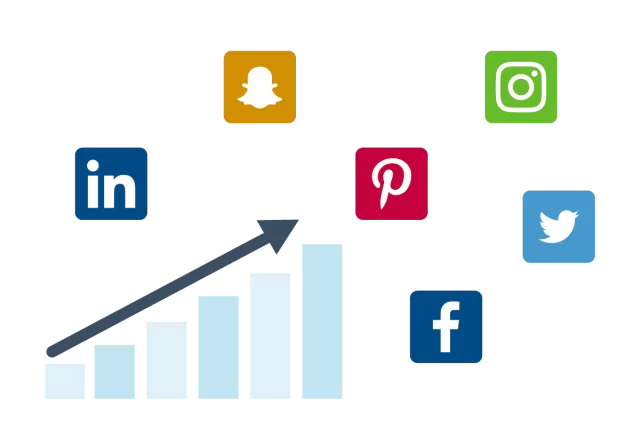Introduction to marketing small business :
Small businesses face unique challenges when it comes to marketing. With limited resources, it’s crucial for these businesses to be strategic in their approach to reach and engage with their target audience, build brand awareness, and ultimately drive sales. Marketing strategies play a vital role in helping small businesses overcome these challenges and achieve their business goals. There are a variety of marketing strategies available to small businesses, ranging from traditional tactics like print advertising and direct mail to digital strategies like social media marketing, search engine optimization (SEO), and email marketing. The best marketing strategy for a small business will depend on its target audience, budget, and goals. It’s important for small businesses to have a clear understanding of their target audience and to set achievable goals for their marketing efforts. By employing the right mix of marketing strategies, small businesses can build their brand, reach new customers, and grow their business. It’s also important to regularly track and evaluate the success of these strategies to make informed decisions and continuously improve their marketing efforts.
Here are five tips for marketing your small business in 2023:
-
website:
website is a key marketing tool for a small business consultant. It should include information about your services, experience, and expertise, as well as a way for potential clients to contact you.
Having a website is crucial for small businesses in today’s digital age. A website serves as the foundation of your online presence and provides numerous benefits to help you reach and engage with your target audience, establish your brand, and drive sales.

Some of the key benefits of having a website for small businesses include
- Increased Brand Awareness: A website allows you to reach a wider audience and establish a professional online presence, which can help increase your brand awareness and recognition.
- Improved customer communication: A website provides a platform for customers to learn about your business, products, and services, as well as a way to contact you for inquiries and support.
- Increased credibility and trust: A well-designed website demonstrates your investment in your online presence and helps build trust with potential customers.
- Cost-Effective Marketing Tool: Compared to traditional marketing methods, a website is relatively low-cost and can reach a global audience with minimal effort.
- search engine optimization (SEO): A website optimized for search engines can increase your visibility and drive organic traffic to your site.
- E-commerce capabilities: A website can offer online sales and transactions, allowing you to expand your customer base beyond your physical location and streamline the sales process for customers.
Having a website can provide numerous benefits to help your small business grow and succeed. By leveraging these benefits, you can create a strong online presence and reach more customers, ultimately leading to increased sales and revenue for your business.
-
Social media marketing:
Social media platforms like LinkedIn, Twitter, and Facebook can be effective tools for promoting your consulting services. Share articles, tips, and insights related to your area of expertise, and engage with others in your industry.

Social media has become an essential tool for small businesses to reach and engage with their target audience. By having a strong social media presence, small businesses can reap many benefits, including:
- Increased brand awareness: Social media allows you to reach a large and diverse audience, increase your brand recognition, and establish a professional online presence.
- Improved customer engagement: Social media provides a platform for customers to connect with your brand, ask questions, and provide feedback, which can improve customer engagement and loyalty.
- Cost-effective marketing: Compared to traditional marketing methods, social media marketing is relatively low-cost and can reach a large audience with minimal effort.
- Improved customer insights: Social media provides valuable insights into your target audience’s preferences, behaviors, and opinions, allowing you to tailor your marketing efforts to better meet their needs.
- Increased website traffic: Social media can drive traffic to your website, increasing your visibility and potential for new customers.
- Competitive advantage: By having a strong social media presence, small businesses can set themselves apart from the competition and establish themselves as industry leaders.
Social media can provide numerous benefits to help your small business succeed and grow. By leveraging these benefits, you can create a strong online presence, reach more customers, and ultimately drive more sales and revenue for your business.
-
Digital Marketing:
Digital marketing is becoming increasingly important for small businesses to reach and engage with their target audience. Make sure to prioritize digital marketing channels such as social media, email marketing, and your business website to reach your target audience where they are spending their time online.
Digital marketing offers many benefits for small businesses, including:
- Reach a wider audience: Digital marketing allows you to reach a wider audience, beyond your local area and beyond traditional marketing methods. You can target specific demographics and reach your target audience where they spend their time online.
- Cost-effectiveness: Digital marketing is often more cost effective than traditional marketing methods and allows you to reach a large audience with minimal investment.
- Increased visibility: Digital marketing helps increase your visibility online and can improve your search engine ranking, making it easier for potential customers to find your business.
- Improved customer engagement: Digital marketing allows you to engage with your customers in real time and provides valuable insights into their preferences and behaviors. This information can be used to improve your marketing efforts and build stronger relationships with your customers.
- Measurable results: Digital marketing provides measurable results, allowing you to track the success of your campaigns and make data-driven decisions about your marketing efforts.
- Flexibility: Digital marketing is highly flexible and can be easily adjusted based on the results of your marketing efforts. This allows you to quickly pivot your marketing strategies to better reach your target audience and achieve your marketing goals.
- Improved brand awareness: Digital marketing can help improve brand awareness and reach new customers. By leveraging digital channels such as social media and email marketing, you can reach your target audience where they are spending their time online and build a strong brand presence.
By incorporating digital marketing into your marketing mix, small businesses can reach a wider audience, improve their visibility online, and achieve their marketing goals in a cost-effective and measurable way.
-
Email marketing :
Email marketing allows you to send targeted messages to a list of subscribers. Use it to announce new services, share updates, and promote special offers.
Email marketing is a powerful and cost-effective tool for small businesses to reach and engage with their target audience. By including email marketing in your marketing mix, you can reap many benefits, including:

- Direct communication: Email allows you to directly reach your target audience with personalized and relevant messages, improving the effectiveness of your marketing efforts.
- Increased conversion rates: Email marketing has a high conversion rate compared to other marketing channels, making it an effective tool for driving sales and revenue for your business.
- Improved customer engagement: Email marketing allows you to build and maintain relationships with your customers, improving customer engagement and loyalty.
- Cost-effective: Email marketing is relatively low cost compared to other marketing methods and can reach a large audience with minimal effort.
- Measurable results: Email marketing provides measurable results, allowing you to track the success of your campaigns and make data-driven decisions about your marketing efforts.
- Targeted messaging: Email marketing allows you to segment your audience and send targeted messages based on their interests and behaviors, improving the relevance of your marketing efforts.
- Increased website traffic: By including links to your website in your email campaigns, you can drive traffic to your site and increase your visibility.
Email marketing is a versatile and effective tool for small businesses to reach and engage with their target audience. By leveraging the benefits of email marketing, you can improve your marketing efforts, drive more sales and revenue for your business, and ultimately succeed in a competitive market.
-
Video Marketing:
Video marketing is a powerful marketing tool that involves creating and sharing videos to promote a product, service, or brand. In today’s digital age, video marketing has become increasingly popular and is a crucial component of any comprehensive marketing strategy. With the rise of social media and the increasing popularity of video content, video marketing offers a unique and engaging way for small businesses to reach their target audience and achieve their marketing goals. Whether it’s through short, snappy social media videos, in-depth explainer videos, or engaging product demos, video marketing has the power to capture the attention of your target audience, increase engagement, and drive conversions. By leveraging the power of video, small businesses can build brand awareness, tell their story, and reach their target audience in a way that is both memorable and impactful.

Video marketing offers many benefits for small businesses, including:
- Increased engagement: Video content is highly engaging and can be a powerful tool for capturing the attention of your target audience and building brand awareness.
- Improved conversions: Video marketing has been shown to improve conversions and increase the likelihood of a viewer taking action, such as making a purchase or filling out a form.
- Increased SEO: Videos can help improve your search engine optimization (SEO) by increasing the amount of time people spend on your website and by making it easier for search engines to understand the content on your website.
- Increased brand awareness: Videos are a great way to tell your brand story and build brand awareness. By leveraging video content, you can showcase your products, services, and brand personality in a more engaging and impactful way.
- Better explanation of products and services: Videos are an excellent way to demonstrate your products and services in action, providing potential customers with a better understanding of what your business has to offer.
- Increased social media engagement: Videos are highly shareable and can be used to increase engagement on social media platforms, reaching a wider audience and building brand awareness.
- Measurable results: Video marketing provides measurable results, allowing you to track the success of your campaigns and make data-driven decisions about your marketing efforts.
By incorporating video marketing into your marketing mix, small businesses can increase engagement, improve conversions, and achieve their marketing goals in a more impactful and engaging way.
Frequently Asked Questions:
What is the best marketing strategy for small businesses?
The best marketing strategy for a small business depends on several factors, including your target audience, budget, and goals. Some of the most effective strategies for small businesses include social media marketing, email marketing, content marketing, search engine optimization (SEO), and influencer marketing.
What are the 4 types of marketing strategies?
The four main types of marketing strategies are product, price, promotion, and place (also known as the 4Ps). These strategies are used to attract and retain customers by offering a unique value proposition, setting competitive prices, promoting products effectively, and making products easily accessible to customers.
What are the 7 strategies of marketing?
The 7 strategies of marketing include market segmentation, market positioning, differentiation, targeting, differentiation, customer intimacy, and customer excellence.
What are basic IS strategies for small businesses?
Basic Information System (IS) strategies for small businesses include data backup and disaster recovery, cybersecurity, mobile device management, cloud computing, and automation of business processes. These strategies help small businesses protect their data, streamline operations, and improve productivity and efficiency.


